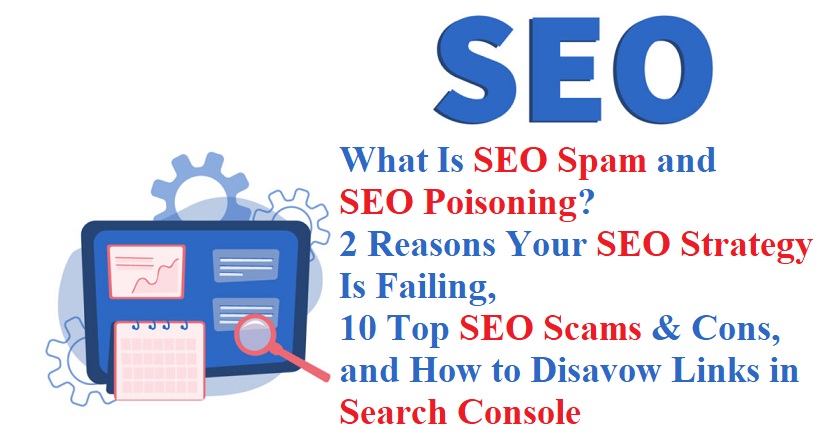What Is SEO Spam?
SEO spam, also known as spamdexing, involves manipulating search engine algorithms to artificially boost a website's ranking. This can include tactics like:- Keyword stuffing: Overloading content with excessive keywords in a way that disrupts the user experience.
- Link farming: Generating a network of low-quality or irrelevant links to artificially increase a site’s authority.
- Hidden content: Including invisible keywords or links that search engines can read but users cannot see.
What Is SEO Poisoning?
SEO poisoning refers to cyberattacks that manipulate SEO tactics to push harmful content up in search engine rankings. The purpose is to deceive users into clicking on malicious websites. Hackers may target high-ranking websites and inject malicious keywords or links to spread malware or steal sensitive data. Signs that your website might be impacted by SEO poisoning include:- Sudden drops in search engine ranking.
- Irrelevant or malicious links appearing on your website.
- Unexplained changes in your site’s content or structure.
2 Reasons Your SEO Strategy Is Failing
Even legitimate SEO strategies can fail due to various reasons. Two of the most common causes include:1. Poor Content Quality
Content is king in SEO. If your content does not provide value, is poorly written, or lacks proper keyword optimization, search engines will penalize your site. Content should be engaging, informative, and tailored to your audience's needs.
2. Ignoring Technical SEO
Technical SEO focuses on the backend of your website, including site speed, mobile optimization, and proper indexing. Failure to address these aspects can result in poor search rankings, regardless of the quality of your content.
10 Top SEO Scams & Cons
The SEO world is full of scams that can drain your money without offering real results. Here are the top 10 scams and cons: 1. Guaranteed #1 RankingNo legitimate SEO expert can guarantee a #1 spot on Google. Algorithms are complex and constantly changing, making such guarantees impossible.
2. Low-Cost SEO PackagesIf an SEO service seems too cheap, it’s likely a scam. Low-cost packages often rely on black-hat tactics like link farming, which can harm your site in the long run.
3. Fake Reviews and TestimonialsScammers often fabricate success stories and reviews to lure clients. Always verify the legitimacy of these testimonials.
4. Link-Buying SchemesPaid links violate Google’s guidelines and can lead to severe penalties. Stay away from companies that sell backlinks.
5. Keyword Stuffing ServicesSome companies promise to increase your keyword density, but this usually involves keyword stuffing, which is penalized by search engines.
6. CloakingCloaking involves showing different content to users and search engines, tricking search engines into ranking a page that doesn’t serve real users. It’s a deceptive practice that should be avoided.
7. Fake Traffic GeneratorsServices that promise to boost your website traffic through bots and fake visitors won’t help your SEO in the long run. Organic traffic is what search engines value.
8. Negative SEO AttacksSome scammers offer to sabotage your competitors by spamming their websites with harmful links. This is illegal and unethical.
9. Over-reliance on Automated ToolsWhile tools can help with SEO, relying solely on automation without human oversight can lead to errors and penalties.
10. SEO Phishing EmailsBeware of emails from fake SEO "experts" offering free audits or consultations. These phishing scams aim to steal sensitive information like login credentials or credit card details.
How to Disavow Links in Search Console
One of the most effective ways to combat harmful backlinks is by using Google Search Console’s disavow tool. Harmful or spammy backlinks can hurt your website’s reputation and ranking. Here’s how you can disavow them:- Identify Harmful Links: Use tools like Ahrefs, SEMrush, or Google Search Console to analyze your backlinks. Look for spammy, irrelevant, or low-quality links.
- Create a Disavow File: Once you’ve identified harmful links, create a text file listing these URLs.
- Submit the File: Log into Google Search Console, navigate to the Disavow Links tool, and upload your file. Google will then ignore these links when ranking your site.

